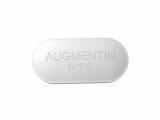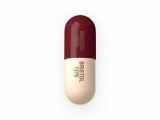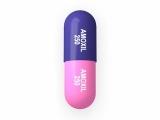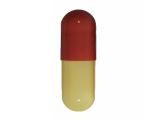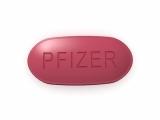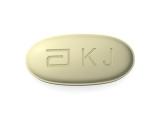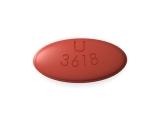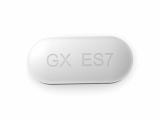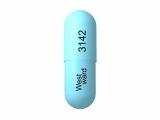
Streptococcal pharyngitis, also known as strep throat, is a painful inflammation of the pharynx that makes swallowing difficult. Moreover, contrary to popular stereotypes, pharyngitis is not just a cold. The disease easily passes into the chronic stage or spreads to neighboring organs, causing complications, often serious. Therefore, it is unacceptable to consider pharyngitis as an annoying nuisance. This is a disease that requires responsible and competent treatment, including antibiotic therapy.
What are the best antibiotics for strep throat?
The choice of antibiotics will depend on the cause of the disease. If the disease has a bacterial nature, doctors usually prescribe one of the following antibiotics:
Be sure to complete the entire course of antibiotic treatment prescribed by your doctor.
How to treat a strep throat?
In uncomplicated cases, pharyngitis can be treated at home with the help of medications prescribed by your doctor. The choice of medications for pharyngitis are depends on the form of the disease, its causes and the involvement of neighboring organs in the pathological process. Treatment of infectious pharyngitis involves the use of antibacterial, antiviral, antifungal agents. At the same time, you need to remember: using antibiotics for pharyngitis without consulting a doctor is unacceptable. An illiterate intake of such drugs, based on Internet data or reviews of acquaintances, can lead to the formation of an antibiotic-resistant flora, and then to complications of pharyngitis, prolongation of the disease and its transition into a chronic one. Even local antiseptics (sprays for pharyngitis, syrups, lozenges for pharyngitis) cannot be used without an appropriate doctor’s recommendation – for the same reason.
In addition to antibiotics or antiviral drugs, local antiseptics, the doctor can prescribe symptomatic drugs – antipyretic agents, thinning sputum, drops or sprays for the common cold.
Natural remedies for pharyngitis can be an excellent complement to the main treatment. In particular, rinsing the throat with soda solutions or decoctions of herbs is effective. This significantly accelerates recovery. You can not do without rinsing if you have a purulent strep throat – a layer of pus must be removed before using local antiseptic agents. To achieve the effect, it is important to repeat rinsing as often as possible – up to 6-7 times during the day.
Inhalations also give a pronounced therapeutic effect, both inhalations through a nebulizer and simple breathing with warm steam from a pot or bowl with a hot decoction of chamomile, calendula, coltsfoot, and linden are good. You can use a simple soda solution and even ordinary mineral water.
The treatment of a chronic strep throat essentially does not differ much from the treatment of the acute form of the disease, except that the therapy itself is usually limited to the sore throat and symptomatic drugs are practically not required. It is necessary to use local antiseptics, emollients, agents that accelerate the restoration of the mucosa. In chronic infection, treatment should be supplemented with vitamin therapy, herbal remedies, and physiotherapy techniques.
Symptoms of a strep throat
Common symptoms of a strep throat:
- unpleasant sensations in the throat: sore, raw, pain, dryness and burning;
- hoarseness, a feeling of stuffy ears;
- increased pain when swallowing, its irradiation in the ears, sensation of a foreign object or coma in the throat.
Fever is uncharacteristic for isolated strep throat. However, in severe cases, with the streptococcal nature of the disease, as well as with damage to other ENT organs, an increase in temperature, an increase in cervical lymph nodes may occur.
If the disease is caused by viruses, it may be accompanied by other signs of SARS – a runny nose, nasal congestion, redness of the eyes, dry cough, or hoarseness. Children often have diarrhea.
When the nature of the disease is bacterial, symptoms may include a slight cough with a clear or purulent sputum. In this case, children also have abdominal pain and loose stools.
The chronic course is characterized by constant difficulty in swallowing, dry throat, bad breath.
Symptoms that require urgent medical attention:
- the inability to swallow water and liquid food;
- labored, noisy breathing through the mouth;
- choking;
- profuse salivation;
- severe fever, which cannot be treated with antipyretics, especially in small children with convulsions or impaired consciousness.
Watch a video about streptococcal pharyngitis, its pathophysciology, signs and symptoms:
What causes a strep throat?
As a rule, this is a viral infection, in some cases it has a bacterial nature (streptococcus, pneumococcus). In addition, causes of pharyngitis include:
- allergy to dust, mold, pet hair, pollen of plants. Since allergies cause a runny nose, fluid may drain down the back of the nasopharynx and irritate the throat;
- dry air, especially in the morning;
- tobacco smoke, chemical irritants;
- overexertion of the vocal cords (long performances, loud screams in sports, etc.);
- gastroesophageal reflux – throwing the contents of the stomach back into the esophagus. It may be accompanied by heartburn, lumps in the throat, hoarseness.
- HIV – a strep throat may be a sign of recent HIV infection in the body. Also, people who have long been infected with HIV may experience secondary acute and chronic strep throat caused by cytomegalovirus, oral candidiasis and common viruses that cause SARS. These complications in HIV-positive people can be dangerous;
- malignant tumors of the throat, tongue, trachea can also cause this disease/ Other symptoms include hoarseness, breathing noise, blood in saliva and sputum, a “knot” on the neck.
Rare causes of a strep throat are a throat abscess and epiglottitis – a serious condition in which the epiglottis becomes inflamed and blocks air from entering the airways.
Is a strep throat contagious?
Yes, this condition is contagious. If you are sick, stay away from other people. Infection ca be transmitted by airborne droplets or by touching surfaces that the patient has touched. Therefore, if you have this disease, do not contact other people.
Frequent (and thorough) hand washing will help prevent transmission. Wash your hands with warm water and soap for at least 30 seconds. Carry an alcohol-based hand antiseptic with you and use it throughout the day.
Use disinfectant on surfaces that other people touch and try not to share household items. Finally, try never to share objects. Also disinfect surfaces that other people might touch, or treat them with wet cleaning wipes. It can be a door handle, dishes, a remote control from a TV or a telephone.
What’s good to eat when you have a strep throat?
Proper nutrition is an important condition for a speedy recovery. The pharynx is part of not only the respiratory but also the digestive system, and food inevitably passes through it. Therefore, nutrition during the illness should minimize additional irritation of the mucosa. No sharp or hard pieces, nothing overly salty, sour, spicy. Of course, the temperature of the dishes should be comfortable, close to body temperature. Mashed potatoes and grated products are the best choice.
Also, it is important to provide the body with sufficient moisture – drink up to 2 liters of water and other drinks daily. Besides, you should maintain the humidity level in the room at least 60% with a household humidifier. Adequate hydration helps to reduce discomfort in the throat, relieve cough, it accelerates the restoration of damaged mucous membranes.
It is important to abandon bad habits (at least for the period of illness, and preferably forever). Smoking has already been mentioned as a factor predisposing to strep throat, it provokes additional damage to the pharyngeal mucosa and exacerbates the course of the disease. Alcoholic beverages irritate the throat and can also provoke a worsening of the patient’s condition, in addition, alcohol is incompatible with most drugs.
How can you test for strep throat?
The doctor determines the following objective symptoms of the disease:
- redness and swelling of the pharynx;
- mucopurulent plaque on its walls;
- involvement of the tonsils, arches, or mouths of the auditory tubes in the pathological process;
- bright red tubercles on the lateral and posterior pharyngeal surfaces – enlarged lymphoid follicles;
- with atrophic pharyngitis, a thinned shiny mucosa with areas of exfoliating epithelium, crusts, viscous mucus is visible.
The only way to diagnose a strep throat is to detect streptococci or other microorganisms in the material obtained from the posterior pharyngeal wall. This can be a microbiological study, including using the PCR method, or an express test. Treatment of a strep throat in adults and children often unreasonably begins with antibiotics, while these drugs should be used only with the bacterial form of the disease.
Can I prevent a strep throat?

Hygienic life can prevent many strep throat cases.
To prevent the diease:
- do not share food, drinks or food containers with other people;
- stay away from sick people;
- wash your hands often, especially before meals and after coughing or sneezing;
- use alcohol-based disinfectants when soap and water are not at hand;
- do not smoke or inhale cigarette smoke.
